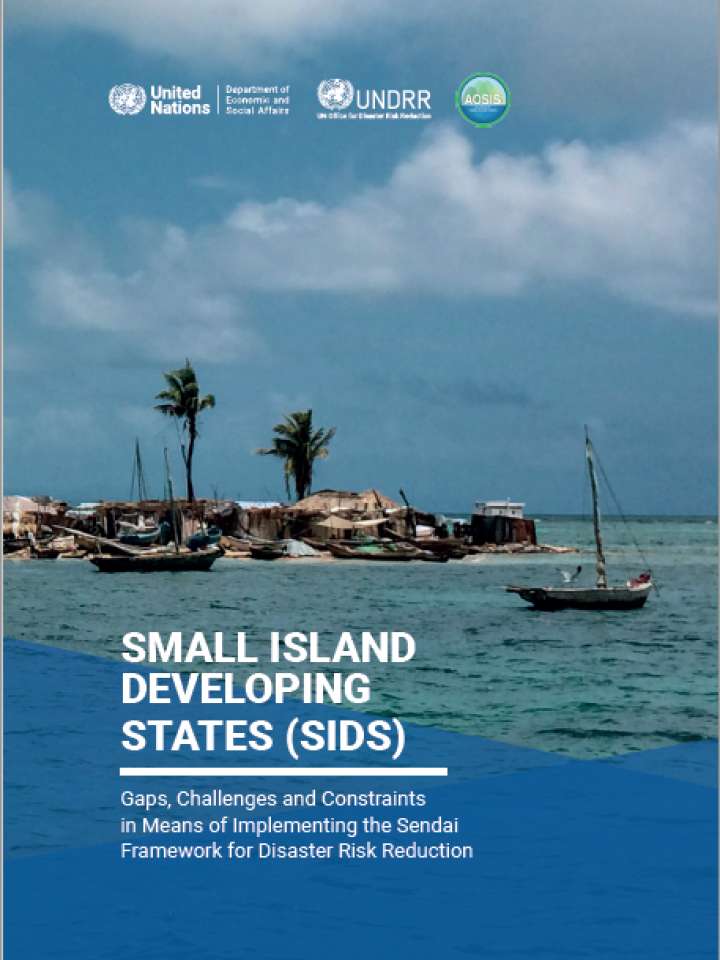Small Island Developing States (SIDS): Gaps, challenges and constraints in means of implementing the Sendai Framework for disaster risk reduction
This report aims to strengthen DRR policies and programs in Small Island Developing States (SIDS), through identifying the achievements, challenges, constraints, and gaps that SIDS face in the means of implementing the Sendai Framework. This gap assessment will seek to document, synthesize, and consolidate SIDS’ experiences and constraints to form a repository where shared concerns and specific national examples illustrating barriers are captured. The means of implementation (or MOI) are the entry point by which this assessment examines the experience of SIDS in implementing the Sendai Framework.
Recommendations on some of the key messages that can be used in various sustainable development fora to better integrate DRR and improve access of MOI for SIDS include:
- Donors and donor agencies must consider the multi-dimensional vulnerability that SIDS face in accessing concessional financing.
- Debt reduction and restructuring should be integrated into DRR support to SIDS, given their high levels of indebtedness.
- SIDS would benefit much more from a programmatic approach with sustained accompaniment than from multiple short-term projects.
- SIDS should be supported in collecting, formalizing, mainstreaming and disseminating best practices of indigenous and local practices, and integrating citizen science for more informed DRR measures.
- Reporting requirements for DRR activities need to be rethought for SIDS if year after year, incomplete data and information is submitted.
